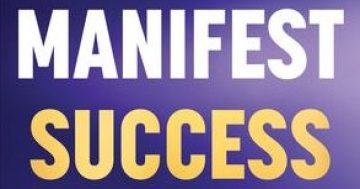John Eades* says everyone experiences setbacks in their careers – the trick is to treat them just as bumps on the road to the ultimate destination.
 Losing a deal, a job being terminated, losing an election, a failed business or project — all these stir up some serious emotions, specifically disappointment.
Losing a deal, a job being terminated, losing an election, a failed business or project — all these stir up some serious emotions, specifically disappointment.
We’ve all experienced it in various shapes and sizes.
While disappointment is hard enough when times are good, our current pandemic environment has brought many of our emotions close to the surface.
So, how do we handle disappointment the right way?
Let’s start on even ground by defining disappointment: Disappointment is the gap between our expectations and reality.
That gap is then filled by emotions like sadness, frustration, anger, or even spite.
While the disappointment gap is not the place you want to stay, you get to choose whether it crushes your dream or drives it.
The best leaders use disappointment to drive their dream instead of crushing it.
Take Dustin Johnson, an uber-talented golfer, as a prime example.
He three-putted on the 72nd hole in the 2015 US Open to lose by one shot.
Fast forward five years to Johnson capturing his second Major by winning the 2020 Masters tournament.
His 2015 loss fuelled his dream to become the top golfer in the world and eventually allowed him to slip on the exclusive green jacket.
Using disappointment to drive your dreams is a skill. It’s like a muscle that gets stronger every time it is stressed.
When you experience disappointment, you are tested and stretched, which expands your capacity.
Experiencing disappointment is a part of being human.
However, it’s felt most intensely by people, as US President, Theodore Roosevelt famously said “who are actually in the arena”.
The best way to handle disappointment is to prepare and plan for it because it’s not a matter of if; it’s a matter of when.
If you are currently experiencing disappointment or want to be better prepared the next time it happens, here are some things to remember.
Never act permanently based on short-term emotion
You might be thinking: “Thank you, captain obvious.”
However, just because it’s obvious doesn’t mean it’s easy.
Disappointment is filled with complicated emotions that even the best leaders struggle with at the moment.
The challenge is not acting on those short-term emotions.
Before making any permanent decision, allow yourself a minimum of 48 hours to process so you can think clearly and make better decisions.
This ‘48-Hour Wait’ will help you better understand what is truly important while taking the time to examine the cause of the disappointment.
Often, people uncover that they’ve put a false sense of importance on things that don’t actually matter to them in the long term.
Add fuel for the fire
Most people take those feelings of disappointment and shove them in a drawer, never again to be reopened.
Great leaders harness those feelings and use them as fuel, keeping their internal fire lit for long periods.
Learn, or it was all for nothing
The only thing worse than experiencing disappointment once is experiencing disappointment again for the same reason.
After a disappointment, open a journal and write down things you experienced or want to learn.
Allow yourself the freedom to answer the following questions honestly and without judgment:
What did I underestimate?
Where did I make mistakes?
How will I do it differently next time?
Do I truly care about this enough to proceed again?
Perhaps you had a not-so-recent experience. You can still go back and assess that situation.
Anything that is going to prevent the possibility of experiencing disappointment the second time should be leveraged.
There is nothing fun about experiencing disappointment.
However, if you don’t act permanently based on short-term emotions, ensure your disappointment is fuel for your fire, and learn from it.
I promise you will come out better on the other side.
Regardless of what you are disappointed about, I urge you to refuse to lower your expectations.
This world needs people who want great things to happen and are willing to be active participants to make them happen.
*John Eades is the Chief Executive of LearnLoft a leadership development company. He is also the host of the Follow My Lead podcast. He can be contacted at johneades.com.
This article first appeared on John’s LearnLoft blog.











